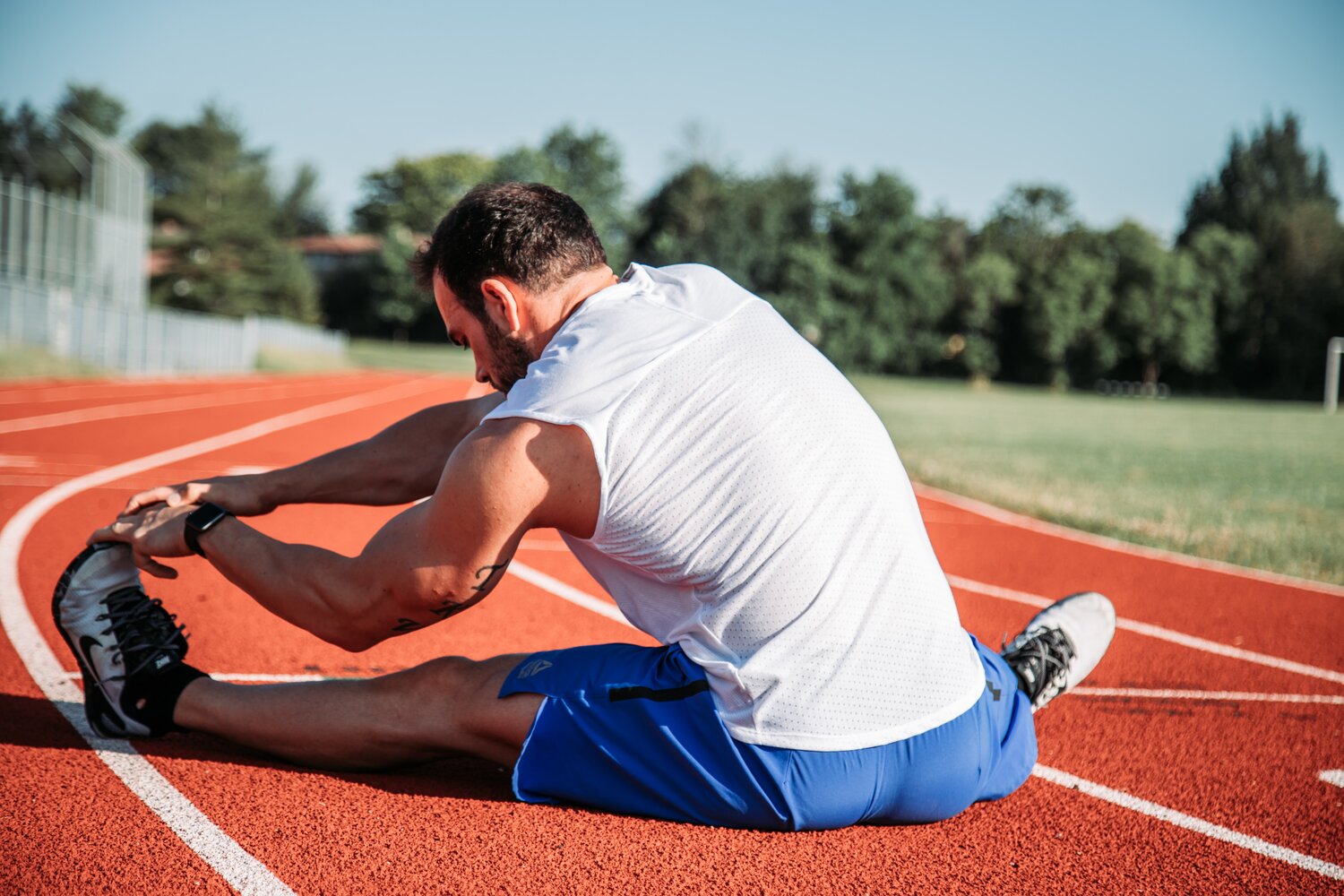
Why do athletes recover faster?
As physiotherapists we work closely with athletes and are often asked “How do athletes recover so quickly?”. The truth is it’s not luck or genetics; recovery is a key part of their training that is carefully planned and rigorously followed to support the body’s natural healing process and prevent further setbacks.
This blog will dive deeper into the strategies athletes follow and give you an idea of how these can be adapted into your own routine to help you recover faster, train smarter and reduce your risk of injury.
Nutrition and Hydration in Athletic Recovery:
Athletes collaborate closely with sports nutritionists to ensure their diets are tailored to support their level of performance. A well-balanced nutritional plan that is rich in protein, amino acids, carbohydrates, healthy fats and essential minerals is fundamental to ensure athletes can meet the physical demands of training and competition.
Protein
Protein is vital for muscle repair and growth. The physical stress placed on their bodies means athletes require a higher protein intake than the general population. Quality sources include lean meats, fish, eggs and dairy products.
Carbohydrates
Carbohydrates serve as a vital energy source, especially during high-intensity or prolonged exercise. Adequate carbohydrate intake helps prevent fatigue and supports sustained performance. Common sources include potatoes, rice, pasta, bananas and berries.
Fats
Fats provide a long-lasting energy source and play a key role in the absorption of fat-soluble vitamins. Athletes benefit from consuming unsaturated fats such as those found in olive oil avocados, and nuts while maintaining a moderate intake of saturated fats from sources like cheese, sausages and butter which contribute to overall health and energy balance.
Minerals
Minerals are essential for various physiological functions including muscle contraction, nerve signalling and immune support. Key minerals include:
- Calcium – Supports bone health and contributes to energy metabolism.
- Magnesium – Plays a role in muscle function, nerve transmission and energy production.
- Potassium and Sodium – Crucial for maintaining fluid balance, preventing dehydration and supporting neuromuscular function.
- Zinc – Aids in immune function, muscle repair and tissue growth.
How Manual Therapy Supports Fast Recovery for Atheletes:
Athletes routinely undergo manual therapy treatments such as soft tissue release, sports massage and joint mobilisations as part of their performance and recovery strategies. These interventions serve several key purposes:
Enhanced Blood Flow
Manual therapy increases circulation which facilitates faster delivery of oxygen and nutrients to working muscles. This supports optimal muscle function and accelerates recovery.
Improved Mobility
Reducing muscle tone following intense training sessions helps maintain range of motion (ROM) and decreases the likelihood of post-exercise stiffness and soreness.
Greater Flexibility
By targeting muscle tightness and fascial restrictions, manual therapy promotes more efficient and unrestricted movement, contributing to enhanced athletic performance.
Incorporating regular manual therapy allows athletes to address muscle imbalances and areas of tension proactively. This not only helps reduce the risk of injury but also supports continual improvements in performance.
Mental Strategies Athletes Use to Recover Faster:
The psychological aspect of sport plays a crucial role in an athlete’s overall performance and wellbeing, particularly during periods of injury. Maintaining mental resilience is just as important as physical rehabilitation. To maintain peak performance athletes, incorporate a range of mental strategies into both their regular training routines and recovery processes.
Positive Self-Talk and Visualisation
These techniques help reinforce confidence, build motivation and maintain focus. Visualising successful outcomes and engaging in constructive self-talk can promote a positive mindset during both training and recovery.
Goal Setting
Establishing realistic and personalised goals provides athletes with a clear sense of direction and purpose. Goal setting helps track progress and creates a sense of achievement, especially important during rehabilitation when motivation may waver.
Social Support
A strong support system including coaches, teammates, friends and family is essential. Positive reinforcement and encouragement from others help athletes maintain motivation and emotional wellbeing, particularly during challenging times when they may experience a sense of lost identity.
Reflection
Regularly reflecting on training, rehabilitation and competition experiences allows athletes to process both successes and setbacks constructively. This practice encourages learning and growth by highlighting areas for improvement while helping prevent excessive focus on negative outcomes.
Why Active Recovery Is Essential for Injury Prevention:
Complete rest is rarely an option for athletes, even during periods of rehabilitation. Maintaining fitness levels, cardiovascular endurance, muscle strength and overall function is essential to ensure a smooth return to full training and competition. Incorporating low-impact and low-intensity activities such as swimming, walking or yoga into a recovery routine supports both physical and mental wellbeing.
Physical Benefits
Engaging in active recovery helps maintain muscular strength and cardiovascular fitness, reduces stiffness and minimises the risk of re-injury when transitioning back into full training.
Mental Benefits
Light exercise can significantly improve mood, reduce stress and maintain a sense of structure and progress during recovery. It also helps athletes stay engaged and motivated which is vital for sustaining a positive mindset throughout rehabilitation.
Athletes do not recover faster because their bodies heal differently; it is because they treat recovery as an integral part of their overall training regimen. To optimise performance, athletes must prioritise recovery just as much as they do training. The body achieves its best gains when it is given adequate time and support to repair and rebuild after exercise.
Physiotherapists play a crucial role in developing personalised recovery strategies for athletes. These strategies focus on individualised care to address the athlete’s sport, individual factors, lifestyle and unique needs, helping them recover more efficiently and return to training or competition with a reduced risk of re-injury.
